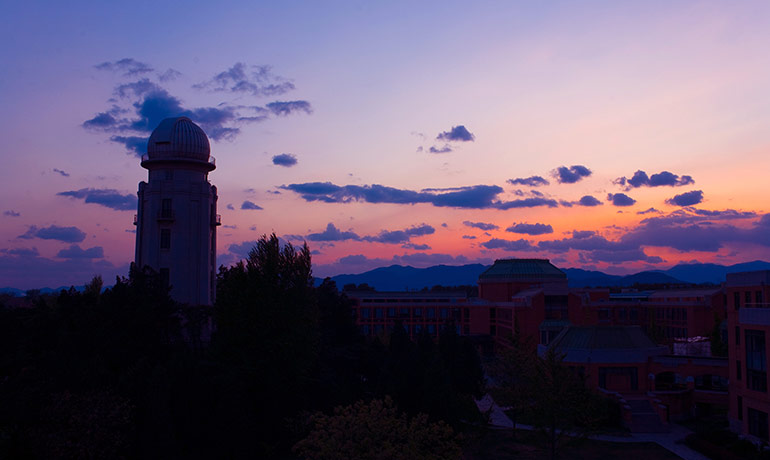Position: Home> Media Center > Forum News

Dr. François Taddei is the co-founder and director of the Center for Research and Interdisciplinary (CRI) in Paris; and has co-founded #LEARNINGPLANET with Audrey Azoulay, UNESCO Director General. As an expert on the future of research and education, he participates in various working groups and reports on the future of research and education for the OECD (e.g. “Training creative and collaborative knowledge-builders”), the EU, and the French government (e.g. “Un plan pour co-construire une société apprenante (A plan to build a learning society together)” ). He holds the UNESCO Chair for "Sciences de l'Apprendre (Learning Sciences)” at the Paris Descartes University. He has written several publications on education and learning, such as “Apprendre au XXIe siècle (Learning in the 21st century)” through publisher, Calmann Lévy. He also recently launch his new MOOC entitled “Vers une planète apprenante (Towards a learning planet)” on FUN-MOOC.
Two key questions to consider about learning analytics.
I think in the post coronavirus era, online learning would be much easier to develop than before because governments, professors, parents, students and companies, everyone in society will understand that we have to be ready to go move online any minute. It has a lot of benefits, for example, easier global collaboration, as you cannot organize it without digital tools.
There are other new possibilities, like learning analytics and the use of AI. I know that China builds many research institutes around this idea. So, I think that China has at least some dimensions of discerning analysis. For me, there are 2 questions in learning analytics.
(1) Do you want to optimize your brain from point A to point B, such that the path from point A to point B is very well defined?
You can try to optimize every one of these simple steps as exactly what you want the students to do and you're sort of forcing them to go exactly step by step. If that's your aim, I think digital tools can help you do this, because you can create a test to know if the speed of progression at every single step.
(2) Can we use and mobilize collective intelligence?
If you don't know where you want to go next, you have to find your path in the unknown. The unknown is much further than following a very well-defined class. Knowing what you do is already not easy, and knowing what you don't know is super hard, and knowing what nobody knows is nearly impossible. So, the question is how can we learn differently today by combining the knowledge of others? For instance, if you want to go from Beijing to Shenzhen, you have access to all sorts of digital tools and travel route recommendations, even if you have never done that exact trip because other people have. You go by high-speed train, plane, car, or a combination of transportations; you can even go for walk (if you really have the stamina).
So, my solution is to build a “GPS of knowledge” (or knowledge navigation) to allow learners to map their position in knowledge space based on their lifelong learning journey that includes formal and informal learning experiences. This way, we can identify relevant (interdisciplinary) collaboration possibilities, practical opportunities, contents, peers and mentors, that can help them move forward. At the moment, we don't have those tools yet, but we are trying to build a prototype. 2 years ago, or even 10 years ago, it was just a dream. But then, we started to have very talented people who have the potential to implement the vision. We are taking experts from all different disciplines: from biology to computer science, and trying to create a knowledge map. Some of them don't work perfectly, but they are pretty much in sync. At the same time, there are talks about economic consequences, school problems, etc.
The idea is that we are trying to build this “GPS of knowledge” and basing it on AI that can also read all of Wikipedia entries. So far, it reads French, English, and Spanish (and maybe Chinese next). For example, you can give a speech, then the AI will analyze and locate the text you may want to further reference in Wikipedia. This is a vector row space with hundreds of dimensions that every text becomes a vector. And every lecture can be computed as a distance to another vector, so that any text can be compared. And you can compute the distance between this text and that text. And you can compute the distance between the text I've read and the text that others read. In other words, combing both collective intelligence and artificial intelligence, we are able to progress towards a “learning society” in the 21st century.
 京公网安备 110402430053 号
京公网安备 110402430053 号